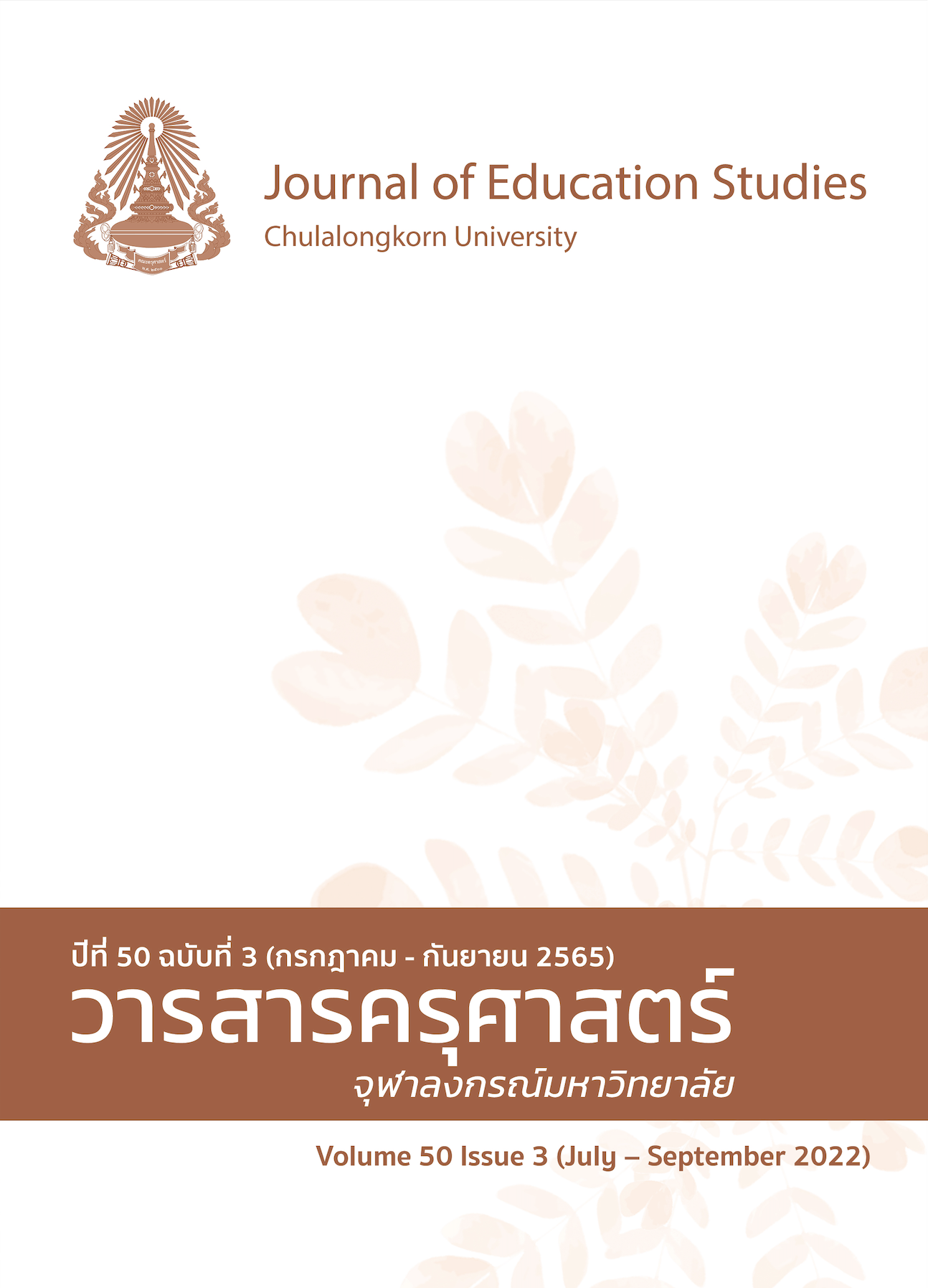Lexical Analysis Based on the Corpus of Huawen Keben
This article is part of the thesis entitled “A Study on the Thai Chinese Textbook Huawen Keben” for the Doctor of Philosophy (Eastern Languages), Department of Eastern languages, Faculty of Humanities, Kasetsart University, Asst. Prof. Dr. Chatuwit Keawsuwan is the principal advisor and Prof. Dr. Kanokporn Numthong is the co-advisor.
DOI:
https://doi.org/10.14456/educu.2022.25Keywords:
Huawen Keben, new words, lexical corpus, gradationAbstract
This paper takes the vocabulary of 12 volumes of Huawen Keben compiled in Thailand in the 1960s as the research object. At that time, the author did not find any vocabulary compilation standards for Chinese textbooks in Thailand. So, this paper has to reluctantly use modern theoretical standard The Graded Syllables, Characters and Words for the Application of Teaching Chinese to the Speakers of Other Languages as the research base, even though they are in different eras, but it has the same purpose that using for Oversea Chinese. This paper mainly adopts a combination of quantitative and qualitative research methods. The study found that the characteristics of all words is with more vocabulary at the elementary level and intermediate level, less vocabulary at the advanced level, and the largest are off-list vocabulary. We can find the reasons were obtained. Firstly, due to the influence of Thailand's strict restrictions on Mainland Chinese teaching at that time, the editor was asked not to introduce socialist China. So, the vocabulary are influenced by the Chinese languages of Hong Kong and Taiwan, and some. Secondly, the principles and habits of vocabulary selection in textbooks are different from those in modern times. Thirdly, under the influence of the Chaoshan dialect in Thailand, some Chaoshan dialect vocabulary appeared. All these reasons have resulted in the phenomenon that there are off-list vocabulary in Huawen Keben. Finally, it can also know that this set of textbooks is published for Chinese descendants to learn Chinese, not for international students.
References
Guo, X. (2019). Huawen jiaoxiao gailun [Introduction to Chinese language teaching]. Commercial.
Liu, X. (2000). Mai xiang 21 shiji de hanyu zuo wei di er yuyan jiaoxue [Teaching Chinese as a second language in the 21st
century]. Language Teaching and Linguistics Studies, 59.
The Ministry of Education of the People’s Republic of China and State language Affairs Commission. (2010). The graded
syllables, characters, and words for the application of teaching Chinese to the speakers of other languages (GF 0015-
. Confucius Institute Headquarters & Beijing Language and Culture University.
Wu, F. (2012). Ji yu Taiguo hanyu jiaocai yuliaoku de shengci fenxi [Analysis of new words based on Thai Chinese
textbooks corpus]. International Chinese teaching, (4), 56-62.
Wattanaborwornwong, L. (2017). The evolution of local Chinese textbooks in primary schools in Thailand based on
vocabulary and related words and phrases. Overseas Chinese Education, (3), 375-382.
Yang, D. F. (1997). Shi lun dui wai hanyu jiaocai de guifan hua [On the standardization of teaching materials for Chinese
as a foreign language]. Language Teaching and Linguistics Studies, 21.
Zhang, N., & Bai, Y. (2010). Hanyu changyongci de wendingxing yu bianyixing [The stability and difference of common
Chinese vocabulary]. Journal of Lanzhou University (Social Sciences), 38(1), 146-149.
Downloads
Published
How to Cite
Issue
Section
License

This work is licensed under a Creative Commons Attribution-NonCommercial-NoDerivatives 4.0 International License.




